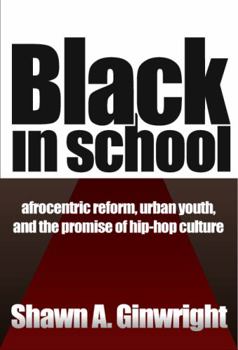Black in School: Afrocentric Reform, Urban Youth & the Promise of Hip-Hop Culture
Select Format
Select Condition 
Book Overview
What are the limits of Afrocentric reform for African American students whose schools and communities are ravaged by poverty? How can an understanding of poverty improve Afrocentric reform efforts? This probing book turns an analytical lens on an urban high school's attempt to improve academic performance with an Afrocentric curriculum. The author's detailed examination provides a comprehensive look at the limits and possibilities for identity reform in poor urban schools. This timely book:
Identifies the conditions and community forces that can either thwart or promote multicultural education in urban schools.Exposes how the influence of the black middle class can often derail the efforts of working-class communities to improve schools. Explains why Afrocentric educational reform should expand its focus on ethnic identity by discussing the impact of economic despair on schools, communities, and African American children and youth.Gives a voice to African American youth by explaining how their race, social class, and gender shape Afrocentric education. Provides successful strategies for curriculum enhancement and school reform, such as how hip-hop culture can be used to support classroom activities.Format:Paperback
Language:English
ISBN:080774431X
ISBN13:9780807744314
Release Date:March 2004
Publisher:Teachers College Pr
Length:168 Pages
Weight:0.57 lbs.
Dimensions:8.8" x 0.5" x 6.0"
Customer Reviews
0 rating





